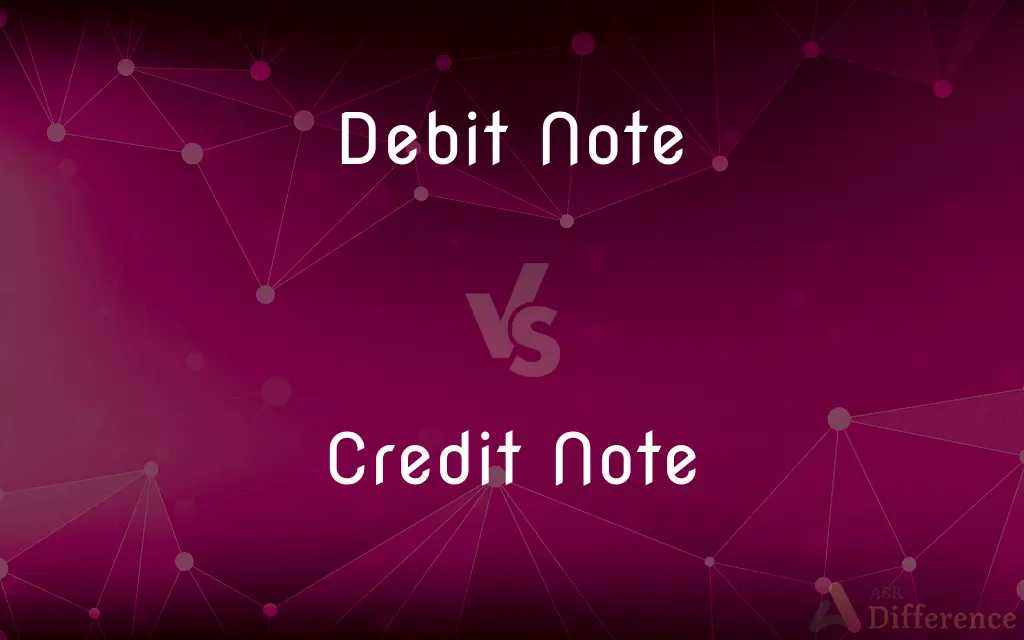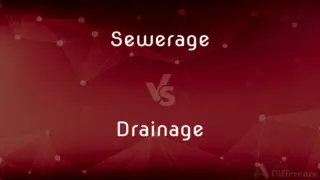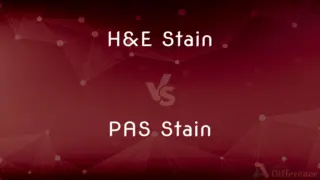Debit Note vs. Credit Note — What's the Difference?
By Tayyaba Rehman — Published on December 15, 2023
A Debit Note represents additional amounts owed, while a Credit Note signifies amounts overpaid or refunded.

Difference Between Debit Note and Credit Note
Table of Contents
ADVERTISEMENT
Key Differences
A Debit Note is a document issued by a buyer to a seller, indicating the amount and reasons for additional charges or amounts owed. It reflects corrections or adjustments to an invoice where the buyer owes more than originally stated. On the contrary, a Credit Note is a document given by a seller to a buyer, signifying a reduction in the amount that the buyer owes, perhaps due to goods returned or overcharged amounts.
In the context of financial transactions, a Debit Note increases the amount a buyer owes, implying they need to pay more. Conversely, a Credit Note means the buyer owes less, often leading to a refund or a reduction in the outstanding balance. Both Debit Note and Credit Note play a vital role in ensuring that financial statements are accurate and reflect the true nature of transactions.
From a seller's perspective, issuing a Debit Note means they expect to receive additional payment. In contrast, when they issue a Credit Note, they acknowledge that they owe the buyer, either in the form of a refund or as a deduction in future transactions. Both these instruments help in maintaining clear, transparent, and accurate records between trading partners.
Lastly, the Debit Note can arise from scenarios like under-billing, incorrect discounts, or damaged goods received. The Credit Note, on the other hand, might be issued due to goods returned, overbilling, or as a goodwill gesture. Both the Debit Note and the Credit Note serve as documentary evidence and are crucial for reconciliation and audit purposes.
Comparison Chart
Issued By
Buyer, indicating amounts owed.
Seller, indicating amounts overpaid or to be refunded.
ADVERTISEMENT
Effect on Buyer's Debt
Increases amount owed.
Reduces amount owed.
Reasons for Issue
Under-billing, incorrect discounts, damaged goods.
Overbilling, goods returned, goodwill gestures.
Reflects
Additional payment expected by seller.
Refund or deduction owed by the seller to the buyer.
Purpose
Correct errors or adjust invoice upwards.
Correct overcharges or adjust invoice downwards.
Compare with Definitions
Debit Note
Indicates under-billed amounts.
Realizing the discount error, the company sent a Debit Note for the balance.
Credit Note
Document indicating a reduction in the amount owed.
The store provided a Credit Note for the returned item.
Debit Note
A formal notice of amount discrepancies.
The company issued a Debit Note after spotting a billing error.
Credit Note
An official record of invoice downward adjustments.
The incorrect bill was rectified with a Credit Note.
Debit Note
A document showing additional amounts owed.
After receiving damaged goods, Jake issued a Debit Note to the supplier.
Credit Note
Signifies refunds or amount deductions.
The company issued a Credit Note for the goods that weren't delivered.
Debit Note
Buyer's tool for upward invoice adjustments.
The Debit Note reflected the extra charges for the added services.
Credit Note
Represents seller's acknowledgment of overpayment.
The Credit Note confirmed the reimbursement for the faulty product.
Debit Note
Signifies corrections to original invoices.
The Debit Note corrected the mistakenly lower charged amount.
Credit Note
Issued due to overbilling or returns.
After realizing the overcharge, the seller sent a Credit Note.
Common Curiosities
Who typically issues the Debit Note?
The buyer issues a Debit Note to the seller when adjustments increase the amount owed.
What is a Debit Note?
A Debit Note is a document indicating additional amounts owed by the buyer due to corrections or adjustments.
Can a Credit Note be considered a refund?
Yes, a Credit Note can either lead to a refund or a reduction in future payments owed by the buyer.
When would a company issue a Debit Note?
A company issues a Debit Note in cases like under-billing, incorrect discounts, or receiving damaged goods.
When might a seller provide a Credit Note?
A seller might issue a Credit Note due to overbilling, goods returned, or as a goodwill gesture.
How does a Credit Note differ from a Debit Note?
A Credit Note signifies amounts overpaid or to be refunded, while a Debit Note represents additional amounts owed.
How do Credit Notes impact financial statements?
Credit Notes can reduce revenue or accounts receivable, reflecting accurate amounts owed.
Can a Debit Note be reversed?
Yes, if both parties agree, a Debit Note can be reversed, often with a corresponding Credit Note.
Are Debit Notes and Credit Notes legally binding?
Yes, they serve as documentary evidence of agreed-upon financial adjustments between parties.
How are Credit Notes typically settled?
Credit Notes can be settled through direct refunds or by reducing the amount in subsequent invoices.
What's the primary purpose of a Debit Note?
The primary purpose of a Debit Note is to indicate and detail additional amounts owed due to discrepancies.
How does a Credit Note affect a seller's revenue?
A Credit Note decreases a seller's revenue as it reduces the amount the buyer owes.
Why are Debit Notes crucial in business transactions?
Debit Notes ensure accurate billing by reflecting corrections or adjustments, ensuring transparency.
Do Credit Notes expire?
This depends on the company's policy and jurisdiction, but typically, Credit Notes have a validity period after which they may expire.
Can a Debit Note be issued after payment?
Yes, if discrepancies are found post-payment, a Debit Note can still be issued.
Share Your Discovery

Previous Comparison
Simple Permanent Tissue vs. Complex Permanent Tissue
Next Comparison
Windows 10 Pro vs. Windows Pro NAuthor Spotlight
Written by
Tayyaba RehmanTayyaba Rehman is a distinguished writer, currently serving as a primary contributor to askdifference.com. As a researcher in semantics and etymology, Tayyaba's passion for the complexity of languages and their distinctions has found a perfect home on the platform. Tayyaba delves into the intricacies of language, distinguishing between commonly confused words and phrases, thereby providing clarity for readers worldwide.















































